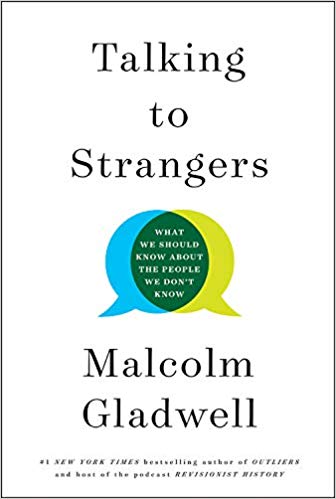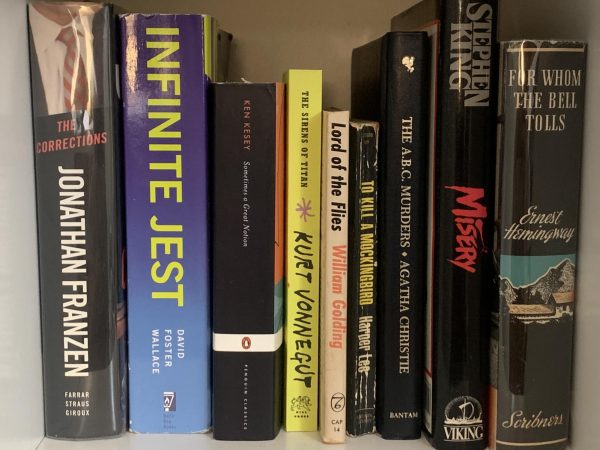“Talking to Strangers” Book Review

Bestselling author, Malcolm Gladwell continues to push readers’ perspectives on life with his latest book “Talking to Strangers.” His newest novel after six years of not releasing work, explores everyday interactions and how quick humans are to make assumptions about those among us. Malcolm Gladwell has published five New York Times bestsellers and has written for The New Yorker, and the Washington Post.
He also produces “Revisionist History” a podcast which examines events from the past trying to reach a new understanding of the occurences. Gladwell, through his simplified language, expresses to readers “what we should know about the people we don’t know” and that the best way to approach strangers, is with caution.
The main idea of the book seems simple, yet when reading further into Gladwell’s findings we learn how complicated strangers really are. The book jumps from different examples and events of deception, opening with the case of Sandra Bland. A woman who was arrested after being pulled over for failing to put on her turning signal. Sandra Bland ended up in police custody where she died, and it was ruled as a suicide. The case is what sparked Gladwell’s interest in understanding our natural tendency to trust strangers and drove him to ask many questions about human instincts.
Initially, Gladwell’s ability to connect his findings to history is what drove my interest in the book. He delves into why Neville Chamberlain believed he could trust Adolf Hitler, and how Fidel Castro deceived the United States for a generation. Gladwell ties in the stories of our past to recent scandals of today, even discussing sexual assault on campuses, the Amanda Knox trial, and analyzing episodes of “Friends.” It often felt that many of Gladwell’s stories were cut short, as if there was some missing information. Many of the anecdotes were sometimes very dark, but they were critical to portray Gladwell’s conceptual findings.
By the end of the novel I understand his purpose in writing brief descriptions of the events he was discussing, as it moved full circle ending on Sandra Bland’s case. Gladwell’s ability to not only question himself but also readers left me with a new understanding of relationships and interactions of humans. After reading each chapter. I was left reflecting on my own conversations and relations with those around me.
One of the most impactful of Gladwell’s lessons was the idea that we naturally “default to the truth.” The idea that we have a tendency to trust others, but there are times where we also struggle to detect the truth. Gladwell explores Bernie Madoff, a former investment advisor, who orchestrated the largest Ponzi scheme. Madoff’s confidence and charm deceived his clients in over $65 billion. Gladwell builds suspense ending each chapter foreshadowing what is to come and the connection to prior stories. He italicized specific words like “complicated” or “specifically” to emphasize the findings or realizations from each chapter.
Through the many stories and scandals Gladwell explores, what should be learned from his intellectual findings is that simple interactions between strangers may not be so minor. He also emphasizes that it’s critical that we continue to trust those around us and to be mindful when understanding people’s reactions.
Gladwell’s book is incredibly relevant in today’s society because it pushed readers to reflect on ideas we don’t typically think of on a day-to-day basis. With the disconnect between technology and social life, it is easier than ever to misunderstand the people around us. Through his simple, suspenseful language Gladwell presents to readers the key aspects of our everyday interactions.















